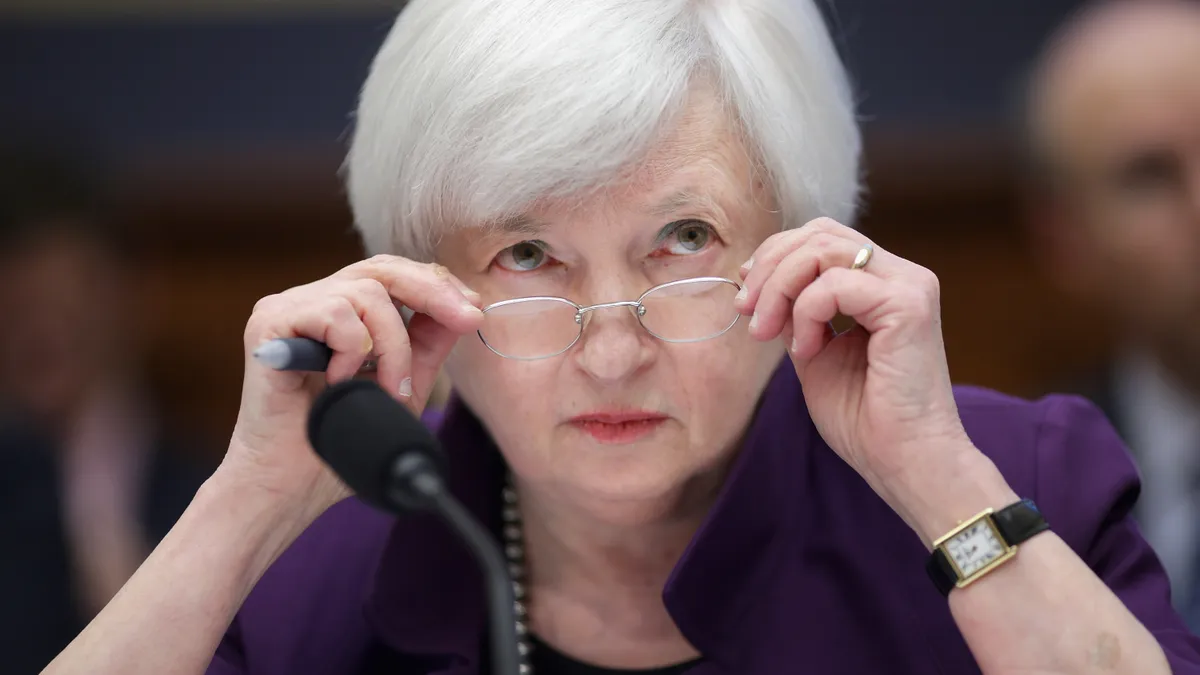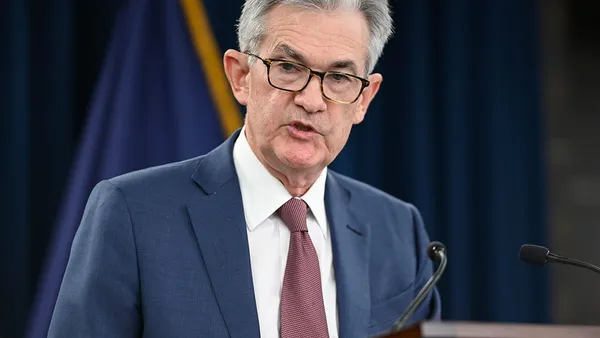Dive Brief:
- The Biden administration gained support from 130 countries to set a minimum global corporate tax of 15% aimed at ending “international tax competition,” curtailing billions of dollars in tax avoidance and shoring up revenues for ambitious federal programs.
-
The pledge by members of the Group of 20 nations and dozens of other countries followed negotiations led by the Organization for Economic Cooperation and Development (OECD). China, Russia and India had previously withheld support for the proposal.
- “For decades, the United States has participated in a self-defeating international tax competition, lowering our corporate tax rates only to watch other nations lower theirs in response,” Treasury Secretary Janet Yellen said in a statement. “Today’s agreement by 130 countries representing more than 90% of global [gross domestic product] GDP is a clear sign: the race to the bottom is one step closer to coming to an end.”
Dive Insight:
A global minimum tax is a pillar in a Biden administration plan to boost tax revenue to finance spending on infrastructure and improvements in U.S. competitiveness. The White House has also proposed increasing the corporate tax rate to 28% from 21% and raising the minimum tax on foreign profits to 21% from 10.5%
The global minimum tax “will allow us to devote the additional revenue we raise to making generational investments, which are necessary to keep America’s competitive edge razor sharp in today’s global economy,” President Biden said yesterday in a statement. “I promised to lead the world to deliver a foreign policy for the middle class, and today, we are doing just that.”
The agreement will prompt the reallocation of $100 billion in profits and annually generate $150 billion in additional tax revenue, according to the OECD. “Additional benefits will also arise from the stabilization of the international tax system and the increased tax certainty for taxpayers and tax administrations.”
Finance ministers from the Group of Seven nations last month endorsed a minimum tax. Ireland and other countries that have served as tax havens have not yet endorsed the proposal.
“After years of intense work and negotiations, this historic package will ensure that large multinational companies pay their fair share of tax everywhere,” OECD Secretary-General Mathias Cormann said.
The U.S. currently raises much less corporate tax revenue than its trading partners, Kimberly Clausing, Treasury Deputy Assistant Secretary for tax analysis, said in testimony to the Senate Finance Committee.
The typical country in the OECD raised the equivalent of about 3% of GDP in corporate taxation in 2018 and 2019 compared with 1% raised by the U.S. government in both years, Clausing said in March.












